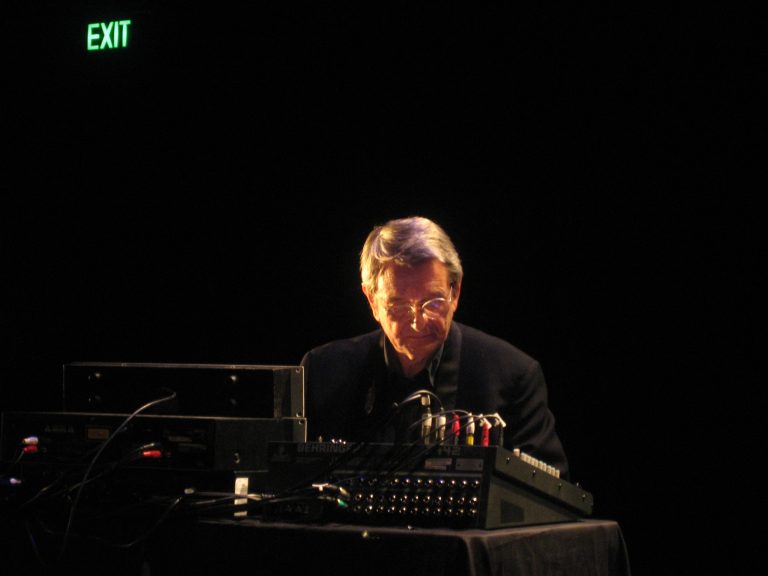Asmus Tietchens (D)
06/03/2017
Live set video

Asmus Tietchens, veteran of European electronic music, was born in 1947. From the seventies until today, the Hamburg composer has always opened his eyes and ears to the musical scenarios that have emerged over the years (from Kraut-rock to industrial , from glitches to noise, from concret bruitage to electroacoustic experiences), nevertheless managing to find in his numerous productions a personal sound and compositional perspectives, guided by a rigorous and coherent vision of musical art.
Active since the 1960s, Asmus Tietchens is a specialist in the recording and manipulation of sounds, characterized by the ability to push the barriers of hearing as far forward as possible. He has released over 70 CDs for labels all over the world (Staalplaat, Multimood, line, aufabwgeen, Die Stadt, Soleilmoon, Korm Plastics, United Dairies, etc.) and has collaborated with sound artists such as Thomas Köner, Vidna Obmana, Okko Bekker, Achim Wollscheid. Over the course of 40 years his music has evolved from the first rhythmic sounds of experiments with tape recorders, tape loops, drum machines, synths and concrete sounds, towards a free manipulation of sound with great sensitivity for the sources used.
In an interview a few years ago, the artist pointed out what sense the “new” in music and sound had for him:
“The new term is double-edged. Compared to electroacoustic music, the new one was already invented 60 years ago. The circle cannot be continuously reopened. But you can change the aesthetic strategies and integrate them with new ideas. New instruments (such as computers) do not generate new music, but they can lead methods and techniques to perfection, as well as help to achieve further musical development. Furthermore, I am of the opinion that the ‘new = good’ equation is not necessarily exact. New, for me, is first of all a category and not a guarantee of quality.
Sound is a particularly important and fundamental component of my compositions. It often happens that I find myself working both on the sound of a series of signals and on the structure of the piece itself. The modern term ‘sound’ was called ‘tonality’ in the past. In this sense, Claude Debussy was the first sound artist at the beginning of the twentieth century.
Since I work and compose mostly in the studio, very conscientiously and with a distinct piano in mind, improvisation plays a subordinate role for me as a composer. As a listener, however, I really appreciate the successful improvisations of other musicians. “
